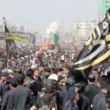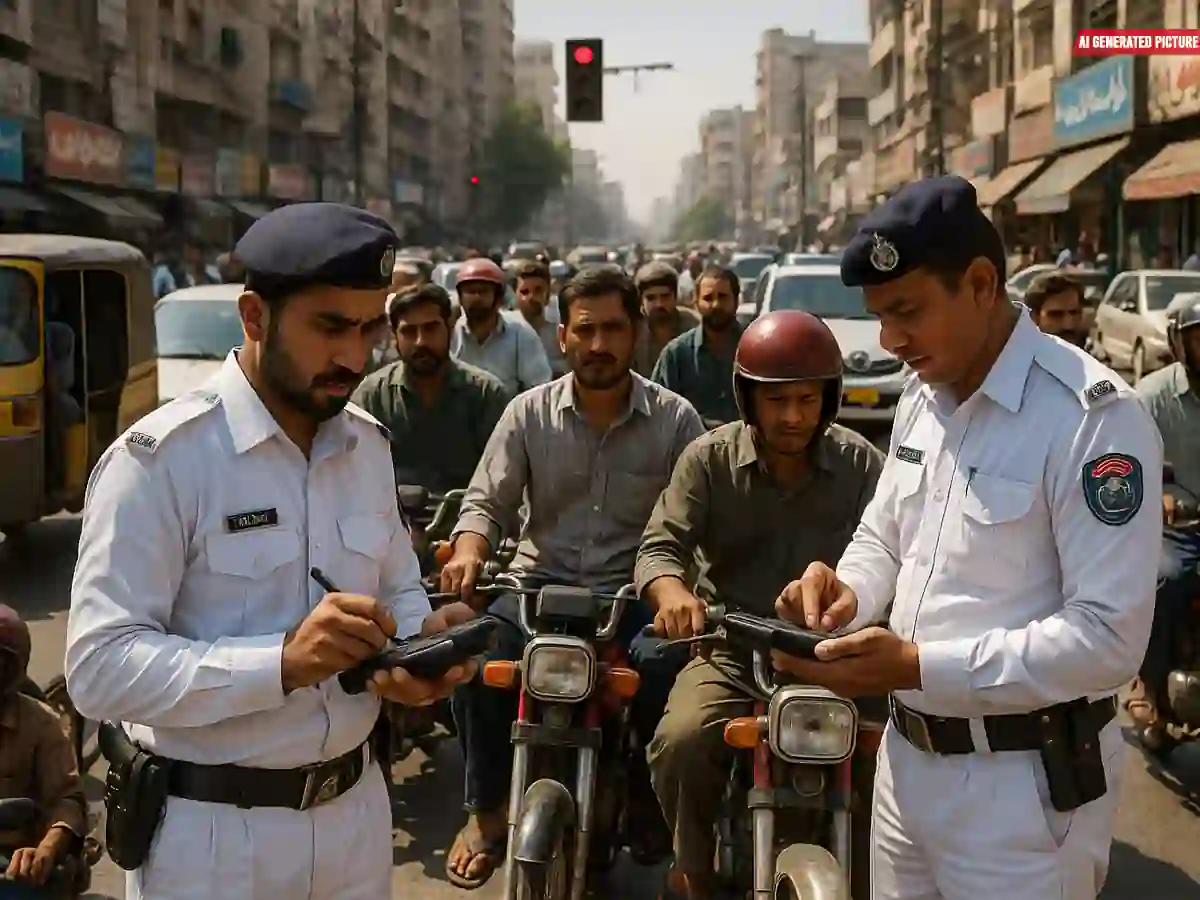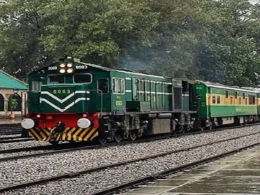According to the latest data on Karachi traffic challans 2025, over Rs417.4 million (Rs41.74 crore) in fines were collected from motorcyclists, with more than 700,000 challans issued for various traffic offenses
In the first nine months of 2025, traffic authorities in Karachi collected Rs970 million (Rs 97 crore) in fines from violators, issuing a total of 1.2 million challans during January through September.
The total amount of fines imposed during this period has exceeded Rs970 million (Rs 97 crore), with a major portion of Rs417.4 million (Rs41.74 crore) collected from motorcyclists for traffic offenses such as lane violations, overspeeding, and signal breaking.
READ: Karachi E-Challan system: Check full list of fines over traffic violation
Over 700,000 challans were issued to bikers alone, leading to fines worth Rs417.4 million (Rs41.74 crore), making motorcyclists the most penalized group in Karachi’s traffic enforcement drive this year.
Meanwhile, 129,000 challans were issued to mini truck drivers, resulting in over Rs130 million (Rs13 crore) in fines.
Visit Times of Karachi website for the latest news-related content
Vans drivers were fined heavily as well, with 92,000 challans totaling Rs752 million (Rs75.2 crore), while motor car owners faced penalties exceeding Rs 80 million (Rs8 crore) for repeated traffic rule violations.
Rickshaw drivers also ranked among the top violators, facing challans worth Rs 921 million (Rs92.1 crore), showing that smaller public transport operators remain a major concern for the traffic police.
READ: Route-wise age restrictions announced for vehicles in Sindh
Starting October 1, the Karachi traffic police announced the discontinuation of on-site challans, introducing a new postal challan system from October 27, designed to automate penalty delivery at home.
Under this system, traffic fines will now be mailed directly to violators’ home addresses, using vehicle registration data to improve accountability and reduce street disputes.
Officials said the initiative aims to promote transparency and efficiency, ensuring that all traffic rule violators are penalized through a centralized digital record system instead of manual collection.













